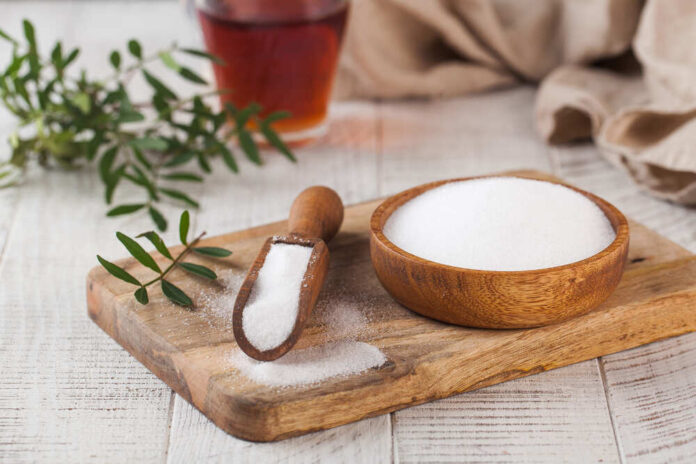
A new study published on Monday suggests that erythritol, a popular zero-calorie sweetener used in reduced-sugar or sugar replacement products, may increase the risk of cardiovascular events, including heart attacks and strokes, for older adults who consume high amounts of the sweetener and are already at risk of heart disease.
Erythritol is a sugar alcohol that occurs naturally in fruits like watermelons, pears and grapes. However, it can be used in processed form as a food additive to sweeten and improve the flavor of various foods.
The study, published in Nature Medicine, has found a correlation between higher levels of erythritol and major adverse cardiovascular events, such as stroke, heart attack, blood clots and cardiovascular death, in patients observed over a period of three years.
According to a recent study, individuals with preexisting risk factors for heart disease and the highest level of erythritol in their blood are twice as likely to experience cardiovascular health conditions.
Dr. Stanley Hazen, the study’s lead author and director of the center for cardiovascular diagnostics and prevention at the Cleveland Clinic Lerner Research Institute, emphasized the significant risk associated with elevated levels of erythritol in the bloodstream. “The degree of risk was not modest,” he said, “If your blood level of erythritol was in the top 25% compared to the bottom 25%, there was about a two-fold higher risk for heart attack and stroke. It’s on par with the strongest of cardiac risk factors, like diabetes.”
The very common and highly recommended zero-calorie sweetener #Erythritol linked to stroke & heart attack risks by new research. Yikes.https://t.co/J2A4grE4PJ
— Lori Shemek, PhD (@LoriShemek) February 28, 2023
While the findings are concerning, researchers caution that further research is needed before drawing definitive conclusions about the potential risks associated with erythritol. The study’s results may not be generalizable to everyone, and more research is necessary to determine the extent of the threat posed by erythritol consumption.
It is essential for individuals to speak with a healthcare professional before consuming erythritol or any other sugar substitute. Anyone who experiences adverse reactions or has concerns about the safety of erythritol should consult their doctor immediately.
The study’s findings highlight the need for continued research into the potential health risks associated with erythritol and other sugar substitutes. As more information becomes available, consumers can make informed decisions about their dietary choices and minimize their risk of adverse health outcomes.





























